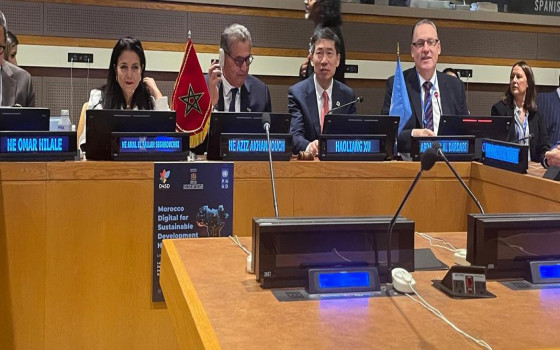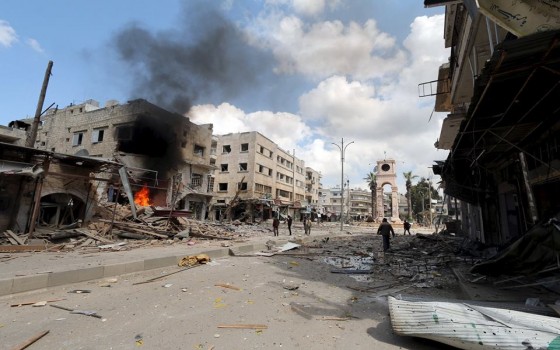
Morocco and the UN partner to accelerate digital transformation in the Arab world and Africa

- Europe and Arabs
- Friday , 3 October 2025 10:47 AM GMT
New York: Europe and the Arabs
As artificial intelligence emerges as a driving force for global economies and societies, the Arab and African regions face systemic challenges—from fragmented systems, high costs, and a shortage of talent—that threaten to leave millions behind.
In response to this pressing need, the Kingdom of Morocco, in collaboration with the United Nations Development Programme, has launched the “Digitalization Hub for Sustainable Development.” This facility, with a total budget of $38 million, will serve as a platform to foster regional cooperation and innovation, and scale up human-centered AI solutions in vital sectors such as health, education, and climate change mitigation. According to the UN News bulletin, a copy of which we received this morning, the center will enable governments to scale up inclusive AI solutions. Prior to the high-level launch event, Morocco and the United Nations Development Programme (UNDP) signed the project agreement for the center, which has a total budget of $38 million over three years. The Moroccan government is contributing $8 million, in addition to a $1 million in-kind contribution from UNDP. In an interview with UN News, Amal Falah Seghrouchni, Minister Delegate to the Head of Government in charge of Digital Transformation and Administrative Reform, emphasized that the initiative "reflects Morocco's firm commitment to making technology a driver of equity, innovation, and opportunity, both within our borders and across Africa and the Arab region." She added that the center "translates Morocco's vision for an inclusive digital future into tangible reality, supported by our strong commitment and the collective expertise of our partners." The Digitalization Center for Sustainable Development aims to address the systemic barriers that prevent developing countries from keeping pace with digital and AI advancements. The center will enhance AI-enabled services in health, education, climate change adaptation, and governance, while empowering women and youth as leaders in the digital age. According to UNDP, this center is directly aligned with the UN Secretary-General's Digital Cooperation Roadmap and the UNDP's Global Digital Strategy, as well as the agendas of the African Union and the League of Arab States. The Moroccan Minister noted that many Arab and African countries have ambitious strategies in this area, pointing out that Morocco launched its own strategy. "The Digital Transformation Strategy 2030" devotes a significant portion to artificial intelligence, as exemplified by the National AI Forum launched by the Kingdom last July, according to Minister Amal Al-Sagroushni.
Will AI take our jobs?
The most prominent question that raises global concern is: will artificial intelligence take our jobs? Dany Waizen, a digital transformation expert at the United Nations Development Programme and head of the regional digital transformation team for Arab countries, addresses this question clearly.
Speaking about the fears of job displacement, Mr. Waizen affirmed that AI "is part of the Fourth Industrial Revolution, and, like any previous industrial revolution, people were afraid that new technologies would take their jobs. But with every new industrial revolution, new jobs emerge."
The UN expert explained to UN News that the focus should be on adaptation, noting that "some jobs will change, and some new ones will emerge using these technologies, and they will also be more efficient."
According to the figures, approximately 27% of jobs will be "assisted" by AI in the coming years, meaning that humans will have technologies to enhance their efficiency rather than being completely replaced, according to Mr. Waizen.
The launch event brought together ministers, representatives, and innovators to discuss the establishment of an "AI and Data Science Alliance for Arab States and Africa."
This multi-stakeholder platform will work closely with the center to align standards, promote talent development, and encourage the responsible use of artificial intelligence.












No Comments Found